Hormonal feedback loop components & Glucagon (glycogenolysis and gluconeogenesis)
By: HWC
Date Uploaded: 11/18/2019
Tags: homeworkclinic.com Homework Clinic HWC The endocrine system homeostasis endocrine cell Glucagon glycogenolysis gluconeogenesis GHRH hGH growth hormone releasing hypothalamus somatotroph cells human growth hormone lipolysis adipose cells
The endocrine system maintains many body conditions within normal limits with feedback loops. Each endocrine feedback loop maintains homeostasis using the following components: • Stimulus - a change in a body condition. • Production cell - an endocrine cell that produces a hormone after being affected by stimulus. • Hormone - the signaling chemical. • Target cell - a cell receptive to the hormone. • Action - what the cell does when affected by the hormone. • Response - the overall change in controlled body condition as a result of the feedback loop. • Exercise, or not having eaten recently, causes a decline in blood glucose concentration. • Low blood glucose stimulates alpha cells in the pancreatic islets to secrete glucagon. • Glucagon targets liver cells. • Glucagon causes liver cells to undergo: • Glycogenolysis, a process which breaks down glycogen into glucose. • Gluconeogenesis, a process which produces glucose from non-carbohydrate sources like amino adds and glycerol. • The glucose is released into the blood and blood glucose concentration is restored to normal levels. GHRH/hGH (glycogenolysis) • A decline in blood glucose concentration stimulates the release of growth hormone releasing (GHRH) hormone from the hypothalamus. • Growth hormone releasing hormone targets the somatotroph cells in the anterior pituitary. • GHRH causes somatotroph cells of anterior pituitary cells to release human growth hormone (hGH). • Human growth hormone targets liver cells. • Liver cells undergo glycogenolysis - breaking down glycogen into glucose. • The glucose is released into the blood and blood glucose concentration is restored to normal levels. GHRH/hGH (lipolysis, summary) • A decline in blood glucose concentration stimulates the release of growth hormone releasing (GHRH) hormone from the hypothalamus. • Human growth hormone targets adipose cells. • Increased hGH causes adipose cells to undergo lipolysis, a process which mobilizes stored lipids for energy use. • Glucose is spared thereby blood glucose levels increase to normal. • hGH causes livers cells to undergo glycogenolysis. • hGH causes adipose cells to undergo lipolysis. The resulting response of hGH secretion to both cell types is the increase in blood glucose levels.
Add To
You must login to add videos to your playlists.
Advertisement



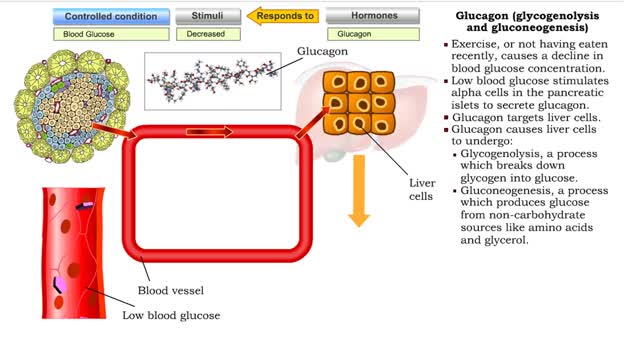
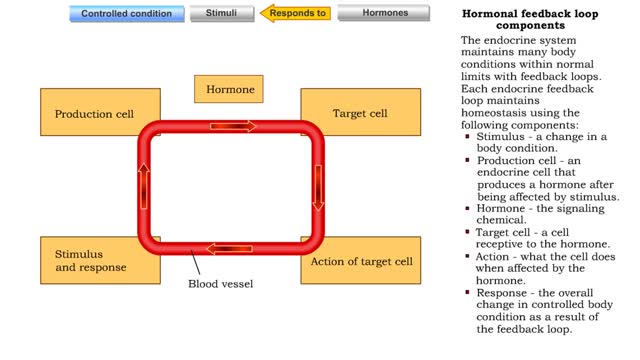
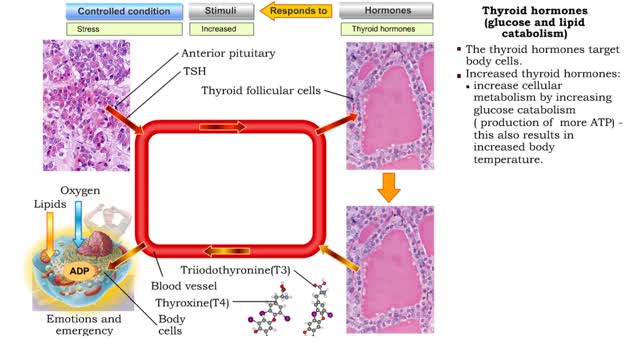
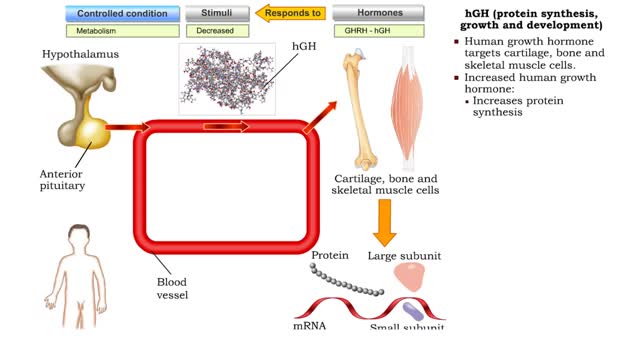
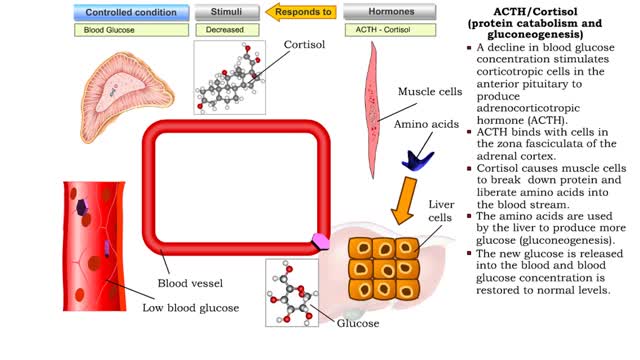
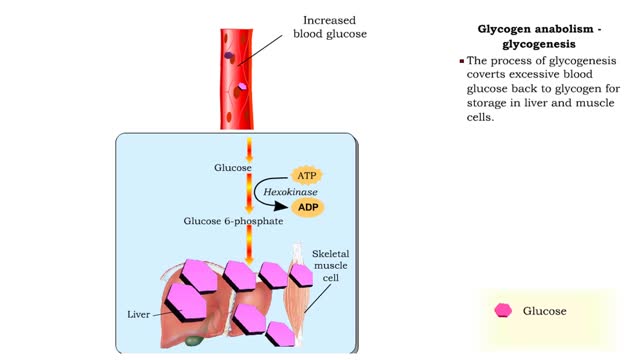
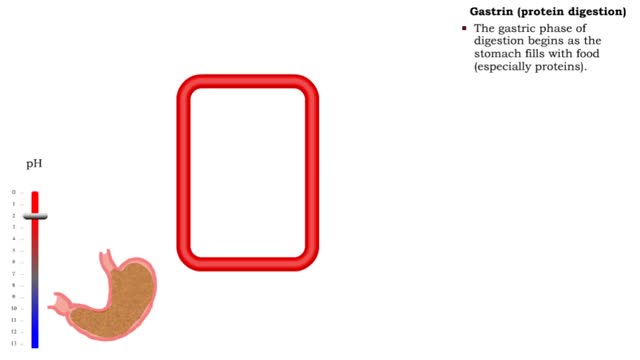
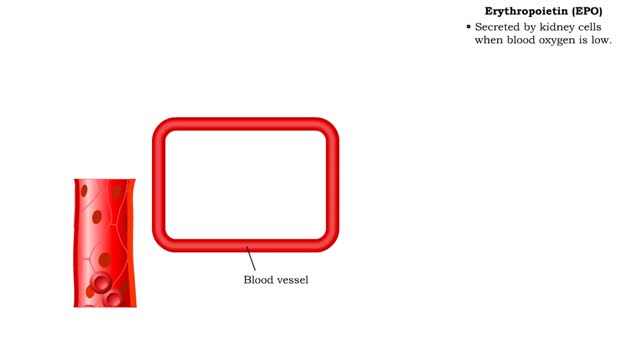
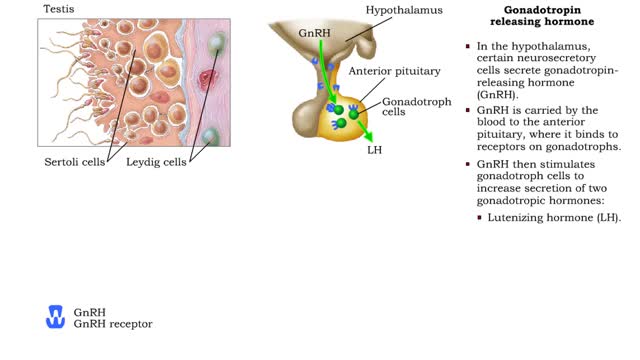
Comments
0 Comments total
Sign In to post comments.
No comments have been posted for this video yet.